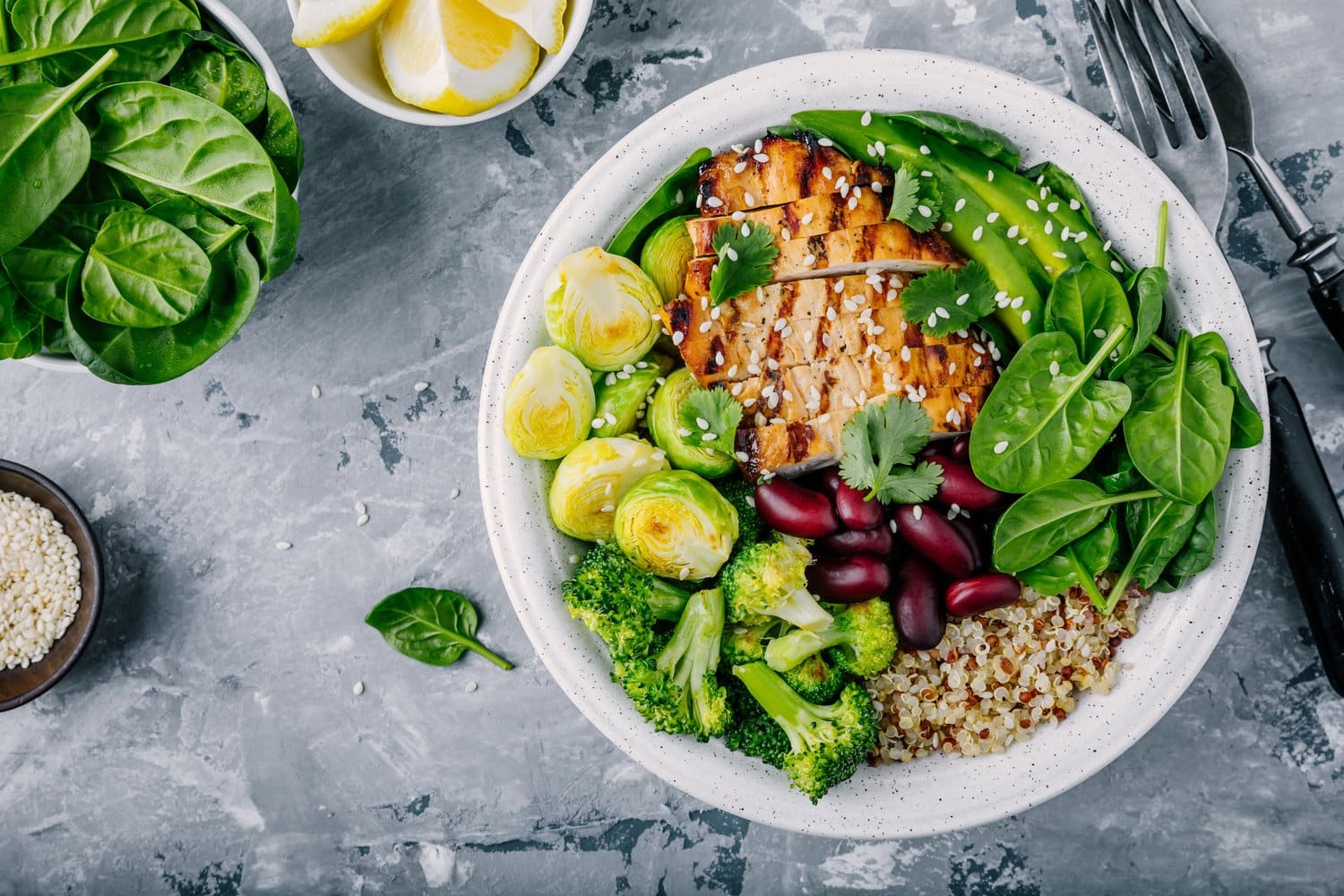Alyssa came to me looking to lose at least 50 pounds. She was 56 years old 5’ 8” tall and she weighed 230 pounds.
She used to be a model so she definitely had been thin in her twenties.
But after getting married and working at a stressful job as a school administrator she hadn’t practiced any significant self-care for over 20 years.
The pounds had slowly inched on.
She had been “dieting” for about a year when she finally arrived in my office. Nothing had worked and she was very frustrated. She was even training with a personal trainer at the gym.
Why wasn’t she losing any weight?

We started with her entering her food and beverage intake into the diet app.
I noticed right away that she was eating a lot of “diet” foods.
Her regulars were low-fat yogurt, high protein bread, sugar-free cookies, protein bars, low-calorie snacks like cheese and crackers in a pre-packaged amount, granola, and string cheese.
What do all of these foods have in common? Put your nutritionist hat on a for a moment and take a guess.
All of these foods are highly processed.
By eating this way she was meeting her caloric needs but she was not losing weight.
Why? It didn’t make any sense.
We are screamed at in the media that it all comes down to “calories-in, calories-out”.
Alyssa was pretty much driving herself nuts.
She was training 4 hours a week with a personal trainer and eating 1200 calories a day.
We estimated that Alyssa probably burns about 1600 calories a day and that doesn’t include exercise or any other activity during the day.
So her eating 1200 calories a day was way below what she was actually “burning”.
Calories-in, calories-out was not working!
So what’s a girl to do?
It took some time but I finally convinced her that she needed to eat mostly whole foods and stop all the processed stuff.
It took several months but eventually Alyssa was able to remove almost all of the highly processed diet foods out of her diet.
She was now eating double the amount of vegetables, a lot more fiber, and only a few processed foods.
Her caloric intake remained about the same.
However, now Alyssa was losing weight! This was magic!
Nah, not magic.
Just an understanding of how the body works and a recognition that “whole foods are king”. Since I work mostly with women, I will rephrase that to say, “whole foods are queen”!
Why is this?
Why are whole foods so much better for you?

And how do they facilitate weight loss and better health better than processed foods?
There are a few reasons why eating a lot of processed foods is bad:
- Less nutrition (fiber, vitamins, minerals, polyphenols, etc) coming in. (1)
- More bad stuff like sugar, unhealthy fat, and sodium coming in. (2)
- Overall people tend to eat more food when eating processed food. (3)
- Processed foods are more likely to disrupt your gut microbiome causing multiple adverse health effects, including compromised metabolism. (4)
- Processed foods, especially refined sugar and flours, can increase low-grade inflammation in the body and thereby disrupt hormonal signaling. This can increase appetite and decrease metabolic activity, causing weight gain. (5)
So you can see that simply by changing the type of food you eat from more processed to less processed you can shift so many things in the body and make weight loss and overall health much more easily attainable.
Just keep in mind that just because something is organic or whole grain, does not mean it is a whole food.
Anything that comes in a box with a long list of ingredients, even if the ingredients include organic chia seeds, is processed.
Yogurt is one of my biggest pet-peeve foods.
Yogurt is not a health food.
For those in the back, yogurt is not a health food.
At least in the form that it usually comes at the grocery store.
Yogurt you get in the store is almost always a highly, highly processed food product that has had some beneficial bacteria added to it.
Unless you can get it raw and cultured at a low temperature, yogurt is a processed food. Sorry.
There is so much more, so next week I’ll talk about how to eat more whole foods.
REFERENCES
- Martinez Steele E., Popkin B.M., Swinburn B., Monteiro C.A. The share of ultra-processed foods and the overall nutritional quality of diets in the US: Evidence from a nationally representative cross-sectional study. Popul. Health Metr. 2017;15:6. doi: 10.1186/s12963-017-0119-3. [PMC free article] [PubMed] [CrossRef] [Google Scholar]
- Rauber F., Da Costa M., Millett C., Monteiro C. Ultra-Processed Food Consumption and Chronic Non-Communicable Diseases-Related Dietary Nutrient Profile in the UK (2008–2014) Nutrients. 2018;10:587. doi: 10.3390/nu10050587. [PMC free article] [PubMed] [CrossRef] [Google Scholar]
- Hall KD, et al. Ultra-processed diets cause excess calorie intake and weight gain: A one-month inpatient randomized controlled trial of ad libitum food intake. Cell Metabolism
- Zinöcker MK, Lindseth IA. The Western Diet–Microbiome-Host Interaction and Its Role in Metabolic Disease. Nutrients. 2018 Mar; 10(3): 365.
- Ian Spreadbury. Comparison with ancestral diets suggests dense acellular carbohydrates promote an inflammatory microbiota, and may be the primary dietary cause of leptin resistance and obesity. Diabetes Metab Syndr Obes. 2012; 5: 175–189.
